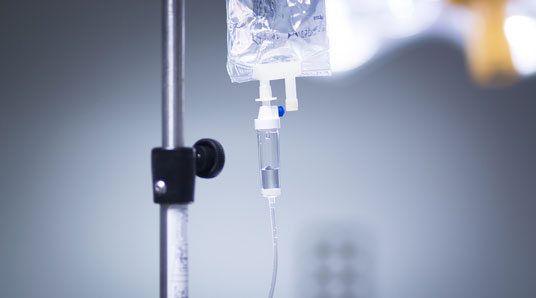An Overview of Luxury Alcohol Rehab Programs
The term alcohol addiction refers to a condition in which an individual becomes intoxicated and becomes dependent on alcohol. When the individual stops drinking, they experience severe withdrawal symptoms.
Alcohol rehab programs often consist of both medical and psychotherapeutic treatment in order to help patients overcome their addiction to alcohol. Each patient has a different level of addiction based on the withdrawal symptoms they experience. The majority of treatment centers design programs that are tailored specifically to meet the needs of each individual client.
If you are struggling with alcoholism, you may benefit from an alcohol rehab program. Inpatient treatment centers are the most effective route to sobriety, but many people are intimidated by the thought of rehab. Below are all the details you need to know before enrolling in a program for alcohol abuse.
Types of Alcohol Treatment Programs
If you decide to overcome an addiction, it is recommended that you enroll in an alcohol treatment program to ensure a safe and effective recovery from alcohol abuse. It is never easy to detox your body from any substance. Not seeking medical assistance during the detox could have a devastating impact on your life. It is therefore important to seek help from a treatment center that can take care of you during withdrawal. There isn’t one program that is geared towards everyone, so most alcohol rehab centers create a customized detox program according to the severity of the addiction and their physical and mental state. Here we have listed some of the most popular alcohol treatment programs to choose from based on the severity of your addiction:
Outpatient Program
Ideal for candidates with mild to moderate addictions. In this program, patients are not required to stay at the rehabilitation center and are able to continue living their everyday lives while receiving treatment. An outpatient rehab center provides a variety of services, including individual counseling, medical detoxification, group therapy, etc., designed to help patients achieve sobriety and maintain it.
Inpatient Program
In this program, the patient stays at the center for a certain period of time and receives medical treatment and psychological assistance. This treatment is most appropriate for patients who are highly addicted to alcohol or drugs. Inpatient rehab centers assist patients in detoxing from alcohol, provide medication to manage withdrawal symptoms, and assist in overcoming emotional and psychological issues.
PHPs (Partial Hospitalization Programs)
These programs allow patients to receive treatment in a hospital during the day and then return home after the treatment is completed. As you are not staying at the center, this is a cost-effective solution, however it is not recommended for patients with a high level of addiction. In order to be successful in a partial hospitalization program, family support is extremely important.
Intensive Outpatient Program (IOPs)
As its name implies, the IOP substance abuse program is ideal for those who seek more support than the traditional outpatient program. The patient needs to visit the center several times a week for a few hours each time. This program might include group therapy, individual counseling, medication management, family therapy, education sessions, etc. It is not suitable for patients with severe alcohol addictions and who need continued medical assistance.
Most of the above-mentioned alcohol rehabilitation programs are suitable for most addicts, but there are many other programs available that might be of interest to you, including:
- 12-Step Programs
- Non-12-Step Programs
- Holistic Programs
Type of Treatments Under Alcohol Rehab Programs

Detox
Detox refers to the process of withdrawing from alcohol dependence. Rather than going through painful withdrawals alone, the process is monitored by medical professionals, who provide medication when necessary and are available in case of an emergency.
Most rehab centers offer alcohol detox programs, although there are also Alcohol Detox Centers that provide a specialized detoxification service. The facility offers the sole service of helping you detox before attending an inpatient program.

Therapeutic Treatments
Individual Therapy: You will work one-on-one with a trained therapist to identify the roots of your alcoholism and work through past traumas.
Group Sessions: Along with other residents of the alcohol rehab center, you will participate in a program designed to help you stay off alcohol while finding meaning in everyday life.
Family Therapy: Alcoholism is often considered a family disease. Family therapy is very beneficial in the recovery process, especially if you are living with your family. Even if you are not living with your family it will be essential to address your family history to learn more about the underlying issues to alcoholism.

Psychiatry
Alcoholism is often not the only issue an individual is dealing with. Many mental illnesses are common co-occurring disorders with alcoholism. A psychiatrist at the rehab facility will assess and diagnose any co-occurring disorders. They will prescribe non-addictive medications to treat these disorders.

Aftercare
The process does not end when you leave the alcohol rehab center. Rehab facilities provide aftercare, which consists of a number of services to help you continue recovery in the outside world. You will continue to see your therapist and psychiatrist, as well as attend group support meetings.
Which is the most effective alcohol treatment program?
There is no specific treatment program universally accepted as the most effective treatment program for alcoholism. Based on the severity of the patient’s drinking habits, the treatment center prepares a customized program that meets the patient’s needs. The most commonly used program for alcohol addiction is an evidence-based program that is backed by scientific research and collected evidence.
These 3 evidence-based program have highest impact on alcoholism:
Cognitive-Behavioral Therapy (CBT)
This therapy includes controlling your thought process and changing your thinking pattern which helps overcome your addiction. Drinking problems may lead to anxiety, depression, and other mental health issues. Cognitive-behavioral therapy helps to control these psychological problems and helps to live a good healthy life. Many research shows that CBT is more effective in treating addiction and mental conditions compared to other treatment models.
Medications
Taking medicine is an effective way to control how your body reacts to alcohol. The FDA has approved three medications for the treatment of alcohol withdrawal: Disulfiram, Naltrexone and Acamprosate. These medications help control withdrawal symptoms, control cravings, and prevent relapse.
12-Step Program
A form of group therapy that is free where people go to get support from other addicts that are no longer under the grips of addiction. The 12-step model is world wide and has been proven to be very effective.
How To Select The Right Alcohol Rehab Program?
Each treatment center has its own method of treating addiction. It can be difficult to choose the right treatment center that offers the most effective alcohol rehab program. There are many facilities that offer the same types of treatment. They differ in terms of how uniquely they treat every patient because alcohol addiction symptoms may vary from patient to patient. Still, you can check the following boxes which help you to find the right center:
- Ascertain whether it will meet your rehabilitation needs
- Check with them if they accept your insurance and whether your coverage includes the services you need
- Do they provide dual diagnosis treatment for co-occurring disorders?
- Do they employ medical and mental health professionals with certification from accredited colleges or universities?
- Do they have a high success rate and provide comfortable amenities?
How Long Should You Spend In A Rehab Center?
It mainly depends on the level of a person’s addiction. Most alcohol rehab centers provide programs that last thirty days. However, there are also sixty and ninety day programs. If you are in a thirty day program, the rehab professionals will discuss your discharge as the end of the program approaches. If they feel you need more time, they will recommend you stay for longer.
How Much Does Rehab Cost?
The prices can vary. An inpatient program at a rehab center is expensed based on a number of factors, including residence and food, medication dispensed, treatments provided by medical and mental health professionals, and other factors. Some of the factors that impact the cost:
- Location
- Amenities
- Types of treatments offered
- Length of stay.
Most health insurance plans cover the cost of rehab, but not all. Therefore, you should speak with your insurance company before enrolling to find out what is covered and what is not. As well, it is advisable to inquire whether your insurance will be accepted at the treatment center.
What Information Is Needed For The Admissions Process?
During admission you will be asked for your medical history, mental health history, the details of your alcoholism and your reasons for choosing to enter treatment.
Common Questions To Ask The Facility
We recommend calling different facilities before selecting a treatment center. Below is a list of general yet important questions which can help you choose the right facility:
- What type of insurance do you accept?
- What treatment approach do you use?
- What is the client to staff ratio?
- How long is the program?
- What is your success rate?
- Do you provide dual diagnosis treatment?
- What amenities do residents have access to?
- Do you provide medical treatment?
- What certifications do your staff members hold?
- Is your rehab accredited?
- What is your visitor policy?
- Do they offer detox?
- Do they offer aftercare plans?
Recovery from any type of addiction can be the most significant thing to do in your life. Help is available if you or a loved one is in need. Call us today and we’ll help select the appropriate rehab.




